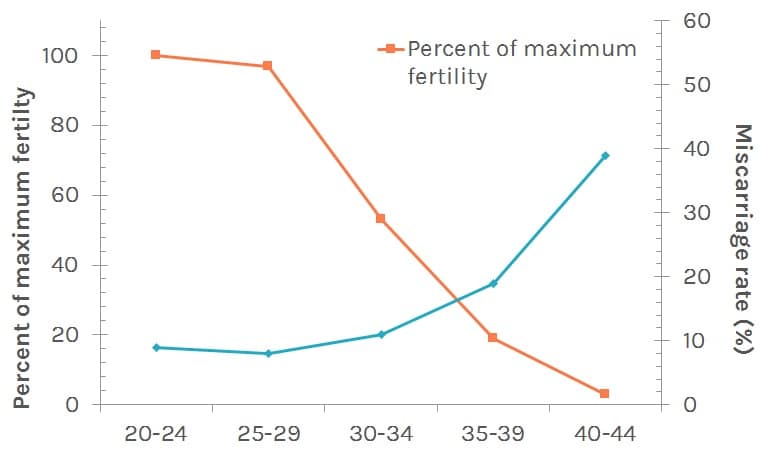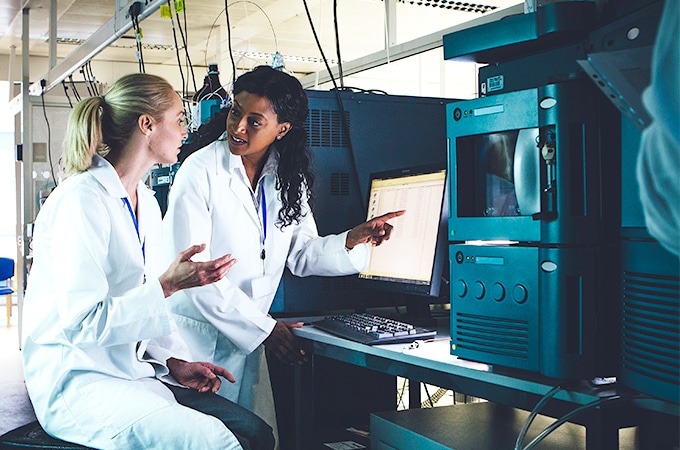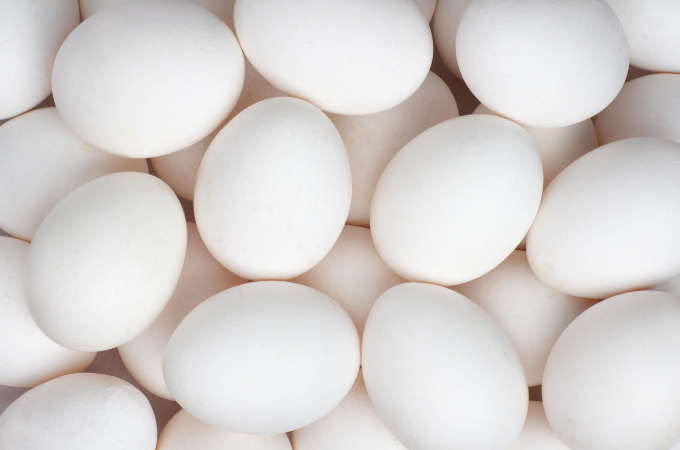Understand the importance of women’s eggs and how it impacts her fertility.
Medical Contribution: Stephen Greenhouse, M.D. (Fair Oaks, VA)
How does age affect the quality and quantity of women’s eggs?
We all know that a woman’s age plays a large role in your fertility success, in that older eggs contribute to a decline in egg quality and quantity, a lower pregnancy rate, a higher rate of pregnancy loss, and a higher rate of fetal chromosomal abnormalities … so what can we do about it?
As we dive into the facts of ovarian aging and what it means to have a low quantity of high quality eggs, we are able to provide some valuable insight that will help you, ideally, be proactive and take a step forward.
The truth of the matter is, you are born with all of the eggs you will ever have in your lifetime. Throughout your lifetime, you will eventually lose all of your potentially fertile eggs, initiating the start of menopause. At birth, you’re born with 1 to 2 million eggs in your ovaries, and by the time you reach puberty, you can expect only about 400,000 to remain. While this doesn’t seem like a significant problem, we must realize that at each menstrual cycle only one egg is prepped for fertilization and about 1,000 die off. Women only ovulate about 1 percent of their eggs.
Aging is inevitable, and so is the decrease in your egg supply
Each oocyte, or immature egg, can reveal a lot about the possibility of chromosomal abnormalities. To break down the science, the genetics and development of the egg is as follows: (1) Primary oocytes replicate the genetic material found in the cell and hold off on cell division until (2) the female begins her first menstrual cycle and meiosis is continued to complete meiotic division. Meiosis is the type of cell division that results in four “daughter cells,” each containing half of the number of chromosomes of the parent cell. The goal is equal chromosomal division among these daughter cells, but as we know, nothing is perfect. If the meiotic spindles that pull the chromosomes apart fail, chromosomal abnormalities will appear. A woman age 20-25 will have abnormal spindle appearance in about 17 percent of her eggs, while women age 40-45 see abnormal spindle appearance in as much as 79 percent of her eggs. It’s clear, with age comes a higher rate of genetic abnormalities, and we can expect the quantity of healthy eggs to decrease drastically.

However, age is not the only factor in egg quality so it’s important to make healthy lifestyle choices, such as avoiding smoking, reducing stress, avoiding environmental contaminants, and maintaining proper nutrition, among other things.
Three Simple Tests Reveal Egg Supply
There are three simple tests to evaluate ovarian reserve: anti-Müllerian hormone (AMH), day 3 follicle stimulating hormone (FSH), and antral follicle count:
- AMH – These levels can be helpful in understanding what treatments may be necessary, as high AMH (>3.5) predicts a good response to medication, and low AMH (<1) reveals a lower expectation of response.
- Day 3 FSH – Follicle stimulating hormone (FSH) is the primary hormone responsible for the production of mature eggs in the ovaries and by measuring a woman’s FSH on day 3 of her cycle, we are able to determine if her baseline FSH is too high or too low.
- Antral Follicle Count – antral follicles, or small follicles that we can see in an ultrasound, is indicative of the number of immature follicles remaining in the ovary.
Generally speaking, hormone testing and antral follicle counts are better predictors of egg numbers while age is a better predictor of age quality. Age and FSH/AMH levels are independent, but combined reveal a woman’s ovarian reserve.
What Can I Do?
Shady Grove Fertility offers a multitude of options for women who wish to take preemptive measures through egg freezing, as well as options for women with a low ovarian reserve, whether you choose to remain trying naturally by expectant management, induce ovulation, use IUI, or assisted reproductive technologies like IVF. Schedule an appointment today to consult with one of our doctors and investigate your options.
Women’s eggs are a main factor of having a baby. If you’re interested in understanding how many eggs you have to better understand your fertility, please call 1-877-411-9292 to schedule an appointment and speak with a new patient liaison.






